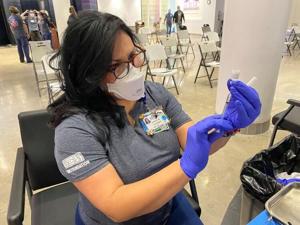Efforts to retain educators in rural Oregon are gaining momentum through programs like Eastern Oregon University’s Teach Rural Oregon. These initiatives aim to address the financial and logistical challenges faced by teachers in remote areas, fostering a more sustainable educational environment.
La Grande’s North Powder Charter School, where Logan Nedrow teaches, serves as a microcosm of the broader issues affecting rural education. With a student population of nearly 300, Nedrow reflects on her journey from student to teacher, having spent her formative years in the same classroom. After earning a master’s degree in education, she returned to make a significant impact on her community’s youth.
The challenges of rural teaching are pronounced. According to the 2016 Better Oregon Rural Education Report, issues such as limited resources and low pay rates contribute to a retention crisis among educators. Many teachers are leaving rural schools for better financial opportunities elsewhere. For instance, Nedrow noted that some educators are receiving pay increases of $20,000 by transitioning to online teaching platforms.
In an effort to combat these challenges, the Oregon Rural Teaching Corps within the Teach Rural Oregon initiative provides scholarships and grants to educators committed to teaching in rural settings. Killian Sump, who taught at Burnt River School, benefited from a $10,000 scholarship that significantly eased his financial burden. This support is crucial for attracting and retaining talent in rural education.
The initiatives focus on more than just financial aid; they also emphasize community building among educators. Sump highlighted the importance of collaboration, stating, “Having those wider groups where you can collaborate and express what you’re going through with other educators… is really helpful.” This sense of community can mitigate the feelings of isolation that often accompany rural teaching.
Programs like the Rural Schools Collaborative have distributed over $1 million to rural educators nationwide, providing direct funding and matching grants. The Teach Rural Oregon program has expanded significantly since its inception in 2022, with nearly a third of all master’s in education students at Eastern Oregon University teaching in rural schools last academic year.
Despite financial challenges, including cuts to the Grow Your Own initiative by the Oregon legislature, there are hopeful signs for the future. Funding from the Educator Advancement Council will support the Oregon Rural Teacher Corps through the 2027 fiscal year. Dave Dallas, who oversees the Teach Rural Oregon program, expressed optimism about the continued support for rural educators. He noted the potential for 35 rural teachers to benefit from forthcoming funding.
Nedrow and Sump exemplify the dedication of teachers working to improve educational outcomes in rural communities. Nedrow stated, “Ultimately, the reason I went into education is to make an impact and change a person’s life, even if it’s just one.” Their commitment highlights the crucial role of passionate educators in transforming the lives of students in rural regions.
In summary, initiatives like Teach Rural Oregon are making strides to address the pressing needs of rural educators. By providing financial support and fostering community connections, these programs offer a model that could be replicated in rural districts across the country. The future of rural education hinges on such innovative approaches and the unwavering dedication of educators like Nedrow and Sump.

































































